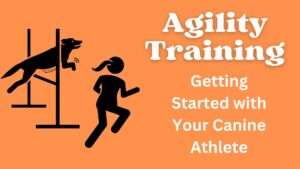Picture this: You’re indulging in a delicious plate of sardines, and your furry friend gazes at you with those puppy-dog eyes, begging for a bite. But should you share your savory snack with them? Can dogs eat sardines safely? Let’s dive into this question and explore everything you need to know about dogs and sardines.
Contents Overview
What is Sardines
Sardines are small, oily fish that belong to the herring family. They are commonly found in the waters of the Mediterranean and Atlantic oceans. These fish are packed with nutrients like omega-3 fatty acids, protein, vitamins, and minerals, making them a popular choice for human consumption. Sardines are often enjoyed canned or fresh and are known for their rich, savory flavor.
Nutritional Value of Sardines
Sardines are highly nutritious, offering a wealth of health benefits. They are rich in omega-3 fatty acids, which support heart health, joint function, and a shiny coat in dogs. Additionally, sardines provide a good source of protein, essential for muscle growth and repair. They contain vitamins such as D and B12, as well as minerals like calcium, phosphorus, and selenium, contributing to overall well-being. With their nutrient-packed profile, sardines are a wholesome addition to both human and canine diets.
Can Dogs Eat Sardines Safely ?
Yes, dogs can eat sardines safely and they can actually benefit from them. Sardines are rich in omega-3 fatty acids, which support heart health, joint function, and a shiny coat in dogs. They also provide a good source of protein, essential for muscle growth and repair. Additionally, sardines contain vitamins such as D and B12, as well as minerals like calcium, phosphorus, and selenium, promoting overall well-being. However, it’s important to feed sardines to dogs in moderation and choose plain varieties packed in water or olive oil to avoid added salt or seasonings.
Potential Benefits
Incorporating sardines into your dog’s diet can lead to several potential benefits:
- Healthy Skin and Coat:
- The omega-3 fatty acids in sardines help nourish your dog’s skin, reducing dryness and itchiness, and promoting a glossy coat.
- Joint Health:
- The anti-inflammatory properties of omega-3 fatty acids may help alleviate joint pain and stiffness in dogs with arthritis or other joint issues.
- Improved Immune Function:
- The vitamins and minerals in sardines support your dog’s immune system, helping them fight off infections and diseases more effectively.
- Cardiovascular Support:
- Omega-3 fatty acids contribute to heart health by reducing the risk of cardiovascular diseases and supporting optimal cardiac function in dogs.
- Brain Health:
- DHA, a type of omega-3 fatty acid found in sardines, is crucial for cognitive function and may help maintain brain health in aging dogs.
Potential Risks and Precautions of Feeding Sardines to Dogs
Let’s explore the potential risks and precautions associated with feeding sardines to dogs.
Risk of Mercury Exposure: Sardines, like many other fish, may contain trace amounts of mercury. While the mercury levels in sardines are generally low, prolonged or excessive consumption can pose a risk, particularly for smaller dogs. Mercury accumulation in the body can lead to various health issues, including:
- Neurological Problems: Excessive mercury intake can affect your dog’s nervous system, leading to neurological symptoms such as tremors, weakness, and coordination problems.
- Digestive Disturbances: Dogs may experience digestive issues such as vomiting and diarrhea if they consume sardines contaminated with high levels of mercury.
Bone Hazard: Sardines are typically consumed whole, including their small bones. While these bones are soft and easily digestible for most dogs, there is still a risk of choking or gastrointestinal obstruction, especially for dogs that gulp their food without chewing thoroughly. Bone-related hazards include:
- Choking: Dogs may choke on small bones if they swallow them whole without adequate chewing.
- Gastrointestinal Obstruction: Ingested bones can cause blockages in the digestive tract, leading to symptoms such as vomiting, abdominal pain, and decreased appetite.
Sodium Concerns: Sardines packed in salt or brine contain high levels of sodium, which can be detrimental to your dog’s health, particularly if they have certain medical conditions such as kidney disease or hypertension. Excessive sodium intake can lead to:
- Dehydration: High sodium levels can cause increased thirst and urination, potentially leading to dehydration in dogs.
- Electrolyte Imbalance: An imbalance in electrolytes, including sodium and potassium, can disrupt normal bodily functions and lead to health issues.
Precautions for Feeding Sardines to Dogs: To minimize the risks associated with feeding sardines to dogs, consider the following precautions:
- Choose Sardines Wisely: Opt for sardines packed in water or olive oil without added salt or seasoning to reduce sodium intake.
- Remove Bones: Before feeding sardines to your dog, carefully remove any bones to prevent choking or gastrointestinal issues.
- Feed in Moderation: Offer sardines as an occasional treat or supplement to your dog’s regular diet rather than a primary source of nutrition.
- Monitor for Adverse Reactions: Watch for any signs of adverse reactions or digestive upset after feeding sardines to your dog, and consult your veterinarian if concerns arise.
- Consult Your Veterinarian: Before introducing sardines or any new food into your dog’s diet, consult with your veterinarian, especially if your dog has specific dietary requirements or health concerns.
Safe Ways to Feed Sardines to Dogs
By following safe feeding practices, you can ensure that your canine companion enjoys the benefits of sardines without any adverse effects. Let’s explore some safe ways to feed sardines to dogs.
- Choose the Right Type of Sardines:Selecting the appropriate type of sardines is crucial for your dog’s health and safety. Here are some considerations:
- Opt for sardines packed in water or olive oil without added salt or seasoning to minimize sodium intake.
- Avoid sardines packed in sauces or marinades, as they may contain ingredients that are harmful to dogs, such as onions or garlic.
- Prepare Sardines Properly:Before feeding sardines to your dog, take the following steps to ensure they are safe for consumption:
- Remove any bones from the sardines to prevent choking or gastrointestinal obstruction.
- Thoroughly rinse the sardines under running water to remove excess salt or oil.
- Feed Sardines in Moderation:While sardines offer numerous health benefits, it’s essential to feed them to your dog in moderation. Here’s why:
- Too many sardines can lead to an imbalance in your dog’s diet and potentially cause digestive upset.
- Offer sardines as an occasional treat or supplement to your dog’s regular diet rather than a primary source of nutrition.
- Monitor Portion Sizes:Consider your dog’s size, age, and individual dietary needs when determining the appropriate portion size of sardines. Here are some guidelines:
- For small dogs, feed half or one small sardine as a treat.
- Medium to large dogs can generally consume one or two sardines per serving.
- Adjust portion sizes based on your dog’s weight and activity level to prevent overfeeding.
- Incorporate Sardines Into Meals:You can incorporate sardines into your dog’s meals in various ways to make them more enticing. Here are some ideas:
- Mix chopped or mashed sardines with your dog’s regular food to enhance flavor and nutritional content.
- Use sardines as a topper for dry or wet food to add variety to your dog’s diet.
- Combine sardines with other dog-safe ingredients, such as cooked vegetables or grains, to create homemade treats or meal mix-ins.
- Observe for Adverse Reactions:After feeding sardines to your dog, monitor them for any signs of adverse reactions or digestive issues. Here’s what to watch for:
- Symptoms of gastrointestinal upset, such as vomiting, diarrhea, or excessive gas.
- Allergic reactions, including itching, swelling, or difficulty breathing.
- Consult Your Veterinarian:Before introducing sardines or any new food into your dog’s diet, it’s essential to consult with your veterinarian. They can provide personalized recommendations based on your dog’s health status, dietary requirements, and potential allergies or sensitivities.
When to Avoid Sardines to Dog
- Allergy or Sensitivity: If your dog has a known allergy or sensitivity to fish or seafood, it’s best to avoid feeding them sardines.
- Pancreatitis Risk: Dogs with a history of pancreatitis or prone to developing pancreatitis should avoid high-fat foods like sardines.
- Kidney Disease: Sardines are high in phosphorus, which can be problematic for dogs with kidney disease. Consult your vet before feeding sardines to a dog with kidney issues.
- Weight Management: If your dog is overweight or on a weight management plan, the calorie-dense nature of sardines may not be suitable. Opt for lower-calorie treats instead.
- Pregnancy or Lactation: Pregnant or lactating dogs may require specific dietary considerations. Consult your veterinarian before introducing sardines into their diet during these stages.
- Medication Interactions: Sardines may interact with certain medications. Always consult your vet if your dog is on medication before adding new foods to their diet.
Safe and Suitable Alternatives of Sardines for Dogs
If sardines aren’t suitable for your dog or if you’re looking for alternatives, several safe options can provide similar nutritional benefits. Cooked salmon or mackerel, free of bones and seasonings, offer omega-3 fatty acids and protein. Canned tuna in water, drained and rinsed to reduce sodium content, can be an occasional treat. Additionally, fish oil supplements specifically formulated for dogs provide a convenient way to boost omega-3 intake without the risk of bones or excess sodium. Always consult your veterinarian to determine the best alternatives based on your dog’s individual dietary needs and health status.
Bottom Line
In conclusion, sardines can be a nutritious and tasty addition to your dog’s diet, offering numerous health benefits such as improved skin and coat health, joint support, and dental benefits. When feeding sardines to your dog, opt for plain varieties packed in water or olive oil, and introduce them gradually in moderation. Always monitor your dog for any adverse reactions and consult your veterinarian if you have any concerns. With proper moderation and consideration, sardines can be a safe and beneficial treat for your beloved canine companion.




































+ There are no comments
Add yours